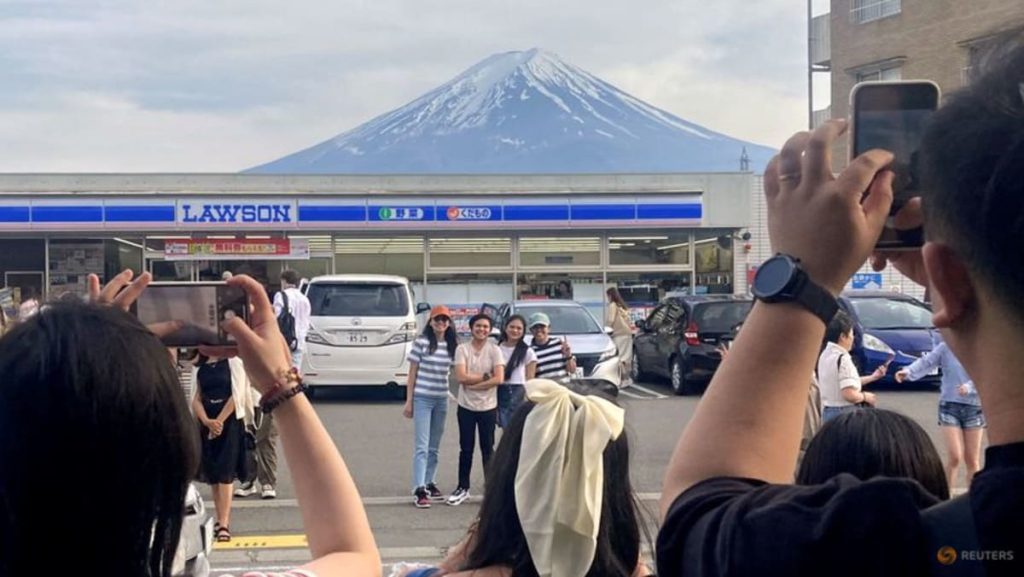The town of Fujikawaguchiko in Japan has taken the drastic step of putting up a net barrier to block the view of Mount Fuji from a popular spot due to issues with overtourism. This move has garnered national and international attention as Japan faces increasing problems with overcrowding at tourist attractions, such as Kyoto’s narrow alleys and Mount Fuji’s trails. The town hall has received numerous complaints from Japanese residents, especially non-locals, who are unhappy about the decision to block the iconic view, but officials insist it is necessary to address the lack of adherence to basic rules by visitors.
Local residents have expressed mixed feelings about the net barrier, acknowledging the importance of tourism for the community’s economy but also highlighting the negative impact of visitors’ disrespectful behavior. While welcoming foreigners for their contribution to the town’s revitalization, residents have witnessed various violations of basic manners such as littering, trespassing, and ignoring road safety rules. Despite the inconvenience of the net barrier blocking the view of Mount Fuji, some residents like Watanabe feel that it may be necessary for now to address the issue of unruly tourists.
The town officials emphasize that the decision to erect the net barrier is not about preventing people from enjoying the majestic view of Mount Fuji but rather about ensuring that visitors adhere to basic rules and show respect for the local community and environment. With the increasing popularity of Mount Fuji as a tourist destination, there needs to be a balance between welcoming visitors and preserving the natural beauty of the area. The net barrier, though controversial, is seen as a temporary measure to address the immediate challenges posed by overcrowding and disrespectful behavior.
The issue of overtourism is a concern not only in Japan but also in many popular tourist destinations around the world. As more people travel to iconic sites like Mount Fuji, the pressure on local infrastructure, environment, and residents’ quality of life increases. Finding sustainable solutions to manage tourism in a responsible manner is crucial for balancing the economic benefits of the industry with the need to protect cultural and natural heritage. The net barrier in Fujikawaguchiko town serves as a reminder of the challenges faced by communities dealing with the negative impacts of mass tourism.
Residents like Watanabe express hope that alternative solutions can be explored to address the issues of bad behavior by tourists without resorting to drastic measures like blocking the view of Mount Fuji. Despite feeling that the net barrier is unfortunate but necessary for now, there is a sense of resignation to the situation due to the lack of compliance with basic manners by some visitors. Moving forward, it will be important for the town officials, residents, and tourists to work together to find a sustainable way to balance tourism with respect for the local community and environment. The case of Fujikawaguchiko town highlights the complex and delicate nature of managing tourism in a way that benefits everyone involved.














